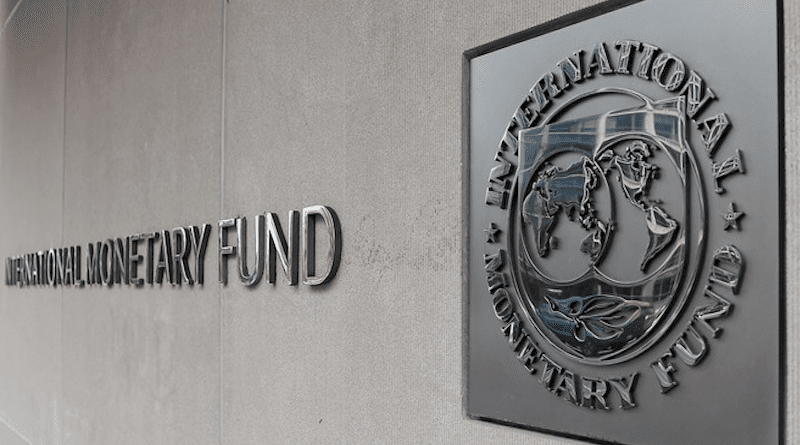Pakistani Elites And The IMF – OpEd
By Amit Bhandari*
Since the beginning of 2023, Pakistani politicians have repeatedly asserted that a ‘deal’ with the IMF is anywhere from days to weeks away. However, earlier this week, the IMF rejected Pakistan’s request for a loan, as per Pakistani media reports[1].
Herein lies an open secret. Pakistan is close to defaulting on its international loans, with official forex reserves of $4.09 billion, enough to cover a month of imports. This number is possibly overstated. Saudi Arabia has parked a $3 billion deposit with the State Bank of Pakistan (SBP), and its tenure was extended in December 2022.[2] At the time the deposit was originally made in end 2021, media reports indicated that while the funds would lie with the SBP, but couldn’t be used by Pakistan. Perhaps this is the reason why Pakistan has curtailed its imports sharply in March and April 2023. Imports for these two months are down by 40% and 55% compared to the same period of 2022. Such a sharp fall also means a contraction of the economy and hardship for citizens as essential goods are no longer available. Pakistan is also not paying the dues of foreign airlines who fly into to the country[3], and risks reduced connectivity, which will further hurt its economy.
These numbers indicate a financial emergency, but Pakistan seems to be in no rush to close a deal with the IMF. A close examination of why, shows those who benefit: largely the elite and the military.
First, in the past month, Pakistan has announced two[4] cuts[5] in the prices of petrol and diesel. A condition the IMF imposes on most countries is a hike in energy prices to eliminate subsidies. The petrol price in Pakistan is the equivalent of INR 75/litre – much lower than India where it exceeds INR 100/litre – largely benefitting the better off.
Second, Pakistan continues to have two separate exchange rates – there is an ‘official’ rate for the US dollar, and a ‘market’ rate which is 7%-8% higher (in PKR). One of the requirements of an IMF program is free float of the currency, which Pakistan seems reluctant to accept. Forex at official rates is available only to the elites. In an illustrative example, the SBP recently permitted banks to acquire US dollars at the ‘official’ rate to settle international credit card dues – a move that would benefit only the elites who hold such cards.
Third, the forex market seems to play an outsize role in Pakistan. In an offer that can be best described as farcical, the association of moneychangers (the Exchange Companies Association of Pakistan) in March 2023 offered the Pakistani government a $24 billion loan spread over two years, in return for not approaching the IMF[6]. In any ‘normal’ country, such an offer by money changers to a national government is unimaginable. The government is also considering allowing people to bring in up to $100,000 without declaring the source of funds – which runs counter to IMF commitments and will facilitate money laundering[7]. Pakistan’s elite (including the military) have access to the country’s banking and forex channels, which allows them to launder money and get their assets out of Pakistan in hard currency. Implementing IMF’s recommendations will also put a stop to that. Fourth, it is well known that the Pakistani military accounts for a lion’s share of the country’s resources and budget. Under the IMF’s direction, the military will have to forego its primacy.
To keep these narrow channels working, the elites of Pakistan are willing to impoverish their country. They are also adept at finding new ways to protect their interest and keep the gravy train moving. In the past, Pakistan has been able to leverage its geopolitical situation, as a staging post against the Soviet Union and then the Taliban, to avoid the IMF’s prescriptions while still receiving its funds. The benefit from being the transit for western supplies to Afghanistan stopped August 15, 2021, and the cash hole it left has caused financial problems. But another current option may prove profitable enough for now: keeping Pakistan relevant by supplying weapons and enabling their transit to Ukraine. Pakistan has not admitted to this, and it is likely that these sales are unofficial – generating more unaccounted cash for the country’s elites.
About the author: Amit Bhandari is Senior Fellow for Energy, Investment and Connectivity, Gateway House.
Source: This article was written for Gateway House: Indian Council on Global Relations.
References
[1] Rana, Shahbaz. “Govt Scrambles as IMF Rejects Pakistan’s Loan Request” The Express Tribune, June 2, 2023. https://tribune.com.pk/story/2419796/govt-scrambles-as-imf-rejects-pakistans-loan-request
[2] SPA. “In Support for the Pakistani Economy, Saudi Arabia Extends the $3B Deposit Placed by the Saudi Fund for Development with Pakistan’s Central Bank.” وكالة الأنباء السعودية, 2022. https://www.spa.gov.sa/en/495d08c9den
[3] “Blocked Airline Funds Threaten Connectivity” IATA, 2023. https://www.iata.org/en/pressroom/2023-releases/2023-06-04-01/
[4] “Ishaq Dar Announces 12-Rupee Cut in Petrol Prices.” Dawn.com, May 15, 2023. https://www.dawn.com/news/1753465
[5] Samaa Web Desk. “Petrol Price in Pakistan Cut by RS8, Diesel by RS5.” Samaa, May 31, 2023. https://www.samaaenglish.tv/news/40037294
[6] Siddiqui, Salman. “Currency Dealers Offer $24B in Loans to Govt.” The Express Tribune, March 30, 2023. https://tribune.com.pk/story/2408883/currency-dealers-offer-24b-in-loans-to-govt
[7] Rana, Shahbaz. “Govt May Amend Law to Bring in Dollars.” The Express Tribune, June 8, 2023. https://tribune.com.pk/story/2420703/govt-may-amend-law-to-bring-in-dollars.


Pakistan is not a poor country in terms of its resources, both natural and human. It has been impoverished by the rulers and the elite- civilian and the military- at the expense of the masses.
International lending agencies (including IMF, WB and others) have both a legal and a moral responsibility not to support this fraud.